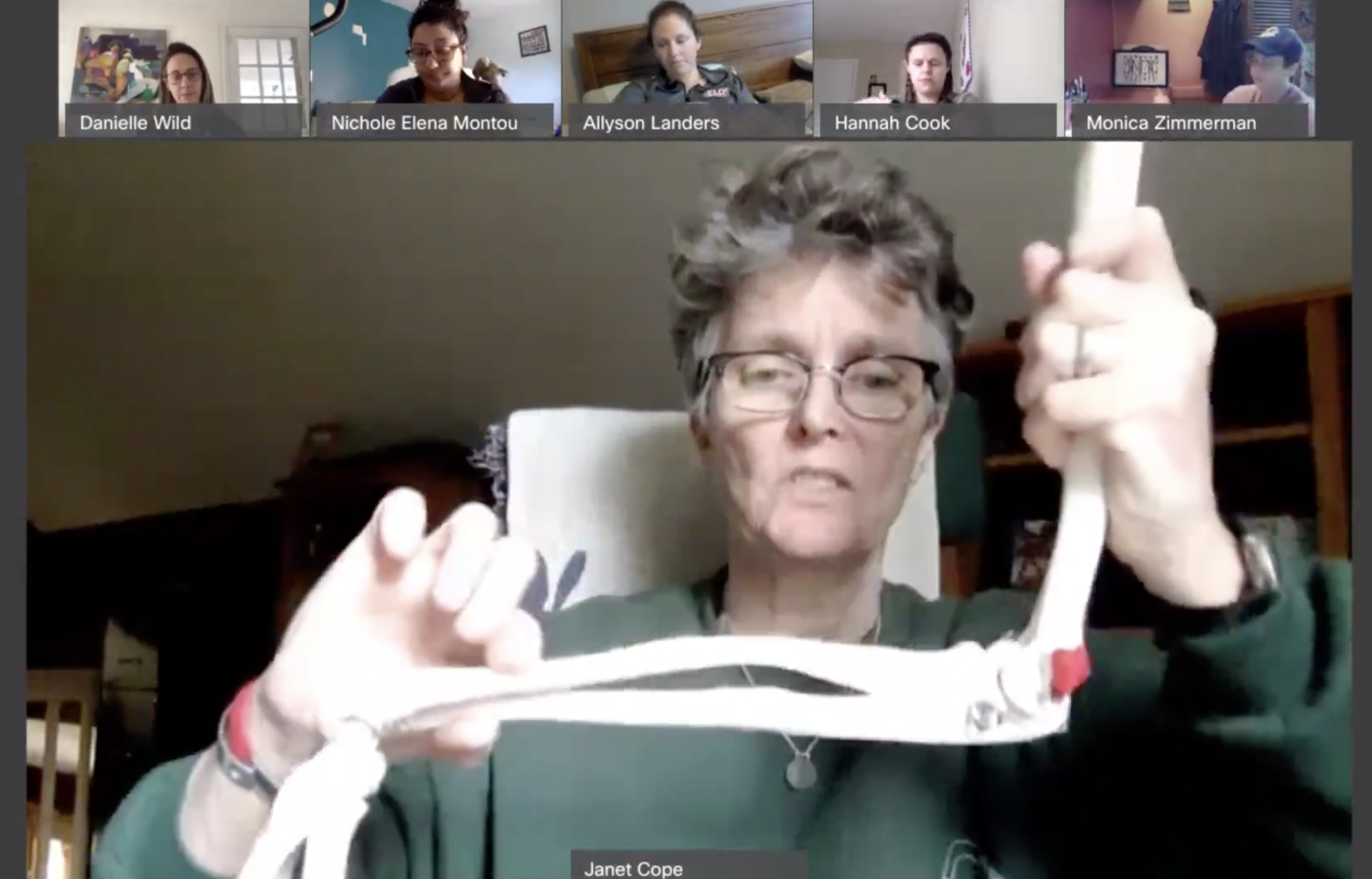Professor of Physical Therapy Education Janet Cope and students in her Doctor of Physical Therapy human anatomy class are finding ways to adjust to their new normal while continuing to move forward.
Online learning might change the way students and faculty interact in the classroom over the next few weeks, but for Professor of Physical Therapy Education Janet Cope, it’s an opportunity to form even stronger bonds with her students.
“This is more personal because students are bringing those personal stories and experiences into the content they share,” Cope said. “So that gives me comfort, and I think it gives them comfort to have contact with each other.”
Cope says that comfort is exactly what she and her first-year Doctor of Physical Therapy students need in a time like this. She has continued to teach her human anatomy course via WebEx, but the transition has brought on major changes to the way Cope’s class is conducted.

Typically, human anatomy students work in labs with human donors, who have given their bodies to research at Elon through the university’s Anatomical Gift program, allowing students to get a hands-on education in the makeup of the human body. Cope has tried to replicate the experience of in-person lab sessions by creating videos – with the help of Adjunct Assistant Professor Monica Zimmerman – in which she performs dissections, but she knows the experience isn’t quite the same for students.
“Everybody is grieving the loss of the work that we get to do in the lab,” Cope said. “As you go through the process of dissection, you appreciate the relationships of the structures, but you mostly appreciate how much everybody is alike and how much everybody is a little different, so right there, that’s a tough one.”
Now, as social distancing and online learning have become the norm, Cope and her students have had to find new ways to get that experience outside the physical lab.
A key facet of Cope’s course has always been allowing students to take what they learn in readings, videos and classroom sessions and teach lessons to their peers. It’s a practice Cope made sure to continue during the transition to online learning. In a recent session, a group of students presented on the functions of the arm and elbow. They used a variety of methods to teach the lesson with one student even incorporating fencing into the instruction.
While Cope admits this has been a difficult adjustment, examples like these show the determination of Elon students and faculty to make the most of a difficult situation.
“It’s not a different style, it’s a different environment,” Cope said. “It is important for us to persist in this time, this is important work. I get to teach our future health care providers, and I’m taking it seriously. I want them to have the best foundation in anatomy that they can get.”



